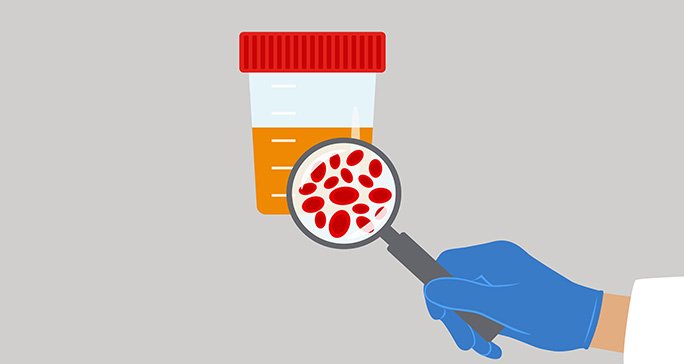- Diseases
- Acoustic Neuroma (14)
- Adrenal Gland Tumor (24)
- Anal Cancer (66)
- Anemia (2)
- Appendix Cancer (16)
- Bile Duct Cancer (26)
- Bladder Cancer (68)
- Brain Metastases (28)
- Brain Tumor (230)
- Breast Cancer (718)
- Breast Implant-Associated Anaplastic Large Cell Lymphoma (2)
- Cancer of Unknown Primary (4)
- Carcinoid Tumor (8)
- Cervical Cancer (154)
- Colon Cancer (164)
- Colorectal Cancer (110)
- Endocrine Tumor (4)
- Esophageal Cancer (42)
- Eye Cancer (36)
- Fallopian Tube Cancer (6)
- Germ Cell Tumor (4)
- Gestational Trophoblastic Disease (2)
- Head and Neck Cancer (6)
- Kidney Cancer (124)
- Leukemia (344)
- Liver Cancer (50)
- Lung Cancer (288)
- Lymphoma (284)
- Mesothelioma (14)
- Metastasis (30)
- Multiple Myeloma (98)
- Myelodysplastic Syndrome (60)
- Myeloproliferative Neoplasm (4)
- Neuroendocrine Tumors (16)
- Oral Cancer (100)
- Ovarian Cancer (170)
- Pancreatic Cancer (164)
- Parathyroid Disease (2)
- Penile Cancer (14)
- Pituitary Tumor (6)
- Prostate Cancer (144)
- Rectal Cancer (58)
- Renal Medullary Carcinoma (6)
- Salivary Gland Cancer (14)
- Sarcoma (236)
- Skin Cancer (296)
- Skull Base Tumors (56)
- Spinal Tumor (12)
- Stomach Cancer (60)
- Testicular Cancer (28)
- Throat Cancer (90)
- Thymoma (6)
- Thyroid Cancer (98)
- Tonsil Cancer (30)
- Uterine Cancer (78)
- Vaginal Cancer (14)
- Vulvar Cancer (18)
- Cancer Topic
- Adolescent and Young Adult Cancer Issues (20)
- Advance Care Planning (10)
- Biostatistics (2)
- Blood Donation (18)
- Bone Health (8)
- COVID-19 (362)
- Cancer Recurrence (120)
- Childhood Cancer Issues (120)
- Clinical Trials (626)
- Complementary Integrative Medicine (24)
- Cytogenetics (2)
- DNA Methylation (4)
- Diagnosis (230)
- Epigenetics (6)
- Fertility (64)
- Follow-up Guidelines (2)
- Health Disparities (14)
- Hereditary Cancer Syndromes (124)
- Immunology (18)
- Li-Fraumeni Syndrome (8)
- Mental Health (118)
- Molecular Diagnostics (8)
- Pain Management (62)
- Palliative Care (8)
- Pathology (10)
- Physical Therapy (18)
- Pregnancy (18)
- Prevention (896)
- Research (390)
- Second Opinion (74)
- Sexuality (16)
- Side Effects (604)
- Sleep Disorders (10)
- Stem Cell Transplantation Cellular Therapy (216)
- Support (404)
- Survivorship (322)
- Symptoms (184)
- Treatment (1774)
Mediterranean diet may slow prostate cancer progression
3 minute read | Published January 07, 2021
Medically Reviewed | Last reviewed by an MD Anderson Cancer Center medical professional on January 07, 2021
The Mediterranean diet can help reduce your risk for many diseases. It helps prevent heart disease and strokes, and has been linked to a lower risk for many cancers.
Now researchers at MD Anderson have found that this largely plant-based diet may also slow prostate cancer progression.
That’s important news for prostate cancer patients who often put off treatment to avoid its impact on their quality of life.
“Men who get treated can have changes to their quality of life, including erectile, urinary or bowel function,” says Justin Gregg, M.D., assistant professor of Urology and lead author of the study. “Anything that would slow the progression, and possibly lower the risk of needing radical treatment, has the potential to be very beneficial.”
The study, published in Cancer, used a nine-point score to rate how closely each man followed the diet. Every one point increase in diet score was associated with a more than 10% drop in risk for prostate tumor progression.
Here’s what to know about the Mediterranean diet.
The Mediterranean diet includes all food groups
The Mediterranean diet is based on the traditional eating patterns of people living in Greece, Italy, South of France and some Middle Eastern countries. It does not restrict fat or carbohydrates; instead, it focuses on whole foods in their most natural form. For example, processed meats and added sugars are discouraged.
The idea is to fill your plate mostly with vegetables, whole grains, fruits, legumes and healthy fats from olive oil, nuts and fish.
You don’t need to eat specially prepared Mediterranean recipes or flavors. You can make any meal you like focusing on these food groups.
“It's emphasizing the plant over the animal,” says Carrie Daniel-MacDougall, Ph.D., associate professor of Epidemiology and senior author of the study. “And it's not low carb. You still get a vast majority of your energy needs met through carbohydrates, but they're high quality, unprocessed carbohydrates that contain protein and good fat.”

These foods work together to reduce your risk for disease.
“This holistic approach to eating is better than focusing on one component, like olive or fish oil,” says Daniel-MacDougall. “It doesn't work that way. It's taking out the bad things and putting in the good things in concert together.”
The link between inflammation, cholesterol and prostate cancer
Research shows that progression of some prostate cancers is linked to inflammation and may also depend on certain types of lipids. This may be why the Mediterranean diet is so helpful.
“We know that the Mediterranean diet lowers systemic levels of inflammation,” says Gregg. “It also likely increases antioxidants, and it lowers levels of some lipids in the body.”
The diet is full of anti-inflammatory foods and healthy fats that reduce bad cholesterol (LDL) and increase good cholesterol (HDL).
The foods you eat affect your body on multiple levels. And it’s not possible to replicate the benefits of healthy foods with supplements, says Daniel-MacDougall.
“There are actually biological ways that all the different components of vegetables work together to form a perfect package that your body can efficiently absorb,” she says. “They’re put together with the phytochemicals, the micronutrients, antioxidants and different types of fiber. Nature has made it that way, and that’s still the best way for us to consume it.”
The Mediterranean diet is safe
More research is needed before a Mediterranean diet is prescribed for patients with prostate cancer or other diseases.
But, says Gregg, this diet is safe, easy to follow and may also reduce your risk for conditions like heart disease and stroke.
“If patients ask me what they should eat, I tell them about this work. It is exciting data,” says Gregg. “This study makes a clear case for future research about the Mediterranean diet.”
Request an appointment at MD Anderson online or by calling 1-844-438-0463.
Related Cancerwise Stories

We know that the Mediterranean diet lowers systemic levels of inflammation.
Justin Gregg, M.D.
Physician





